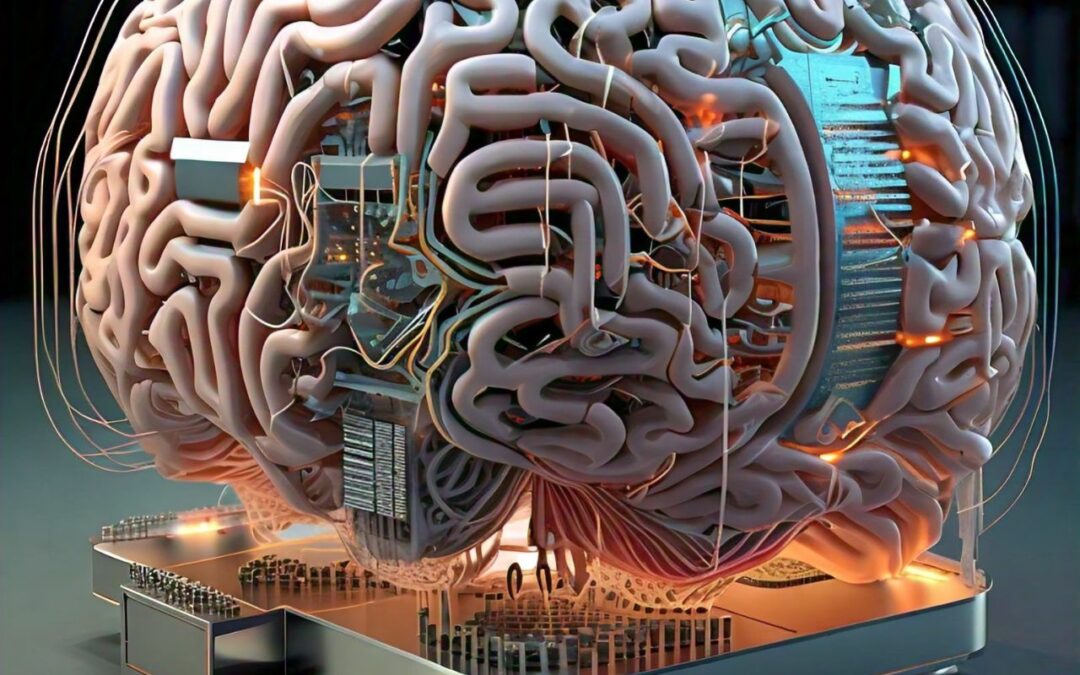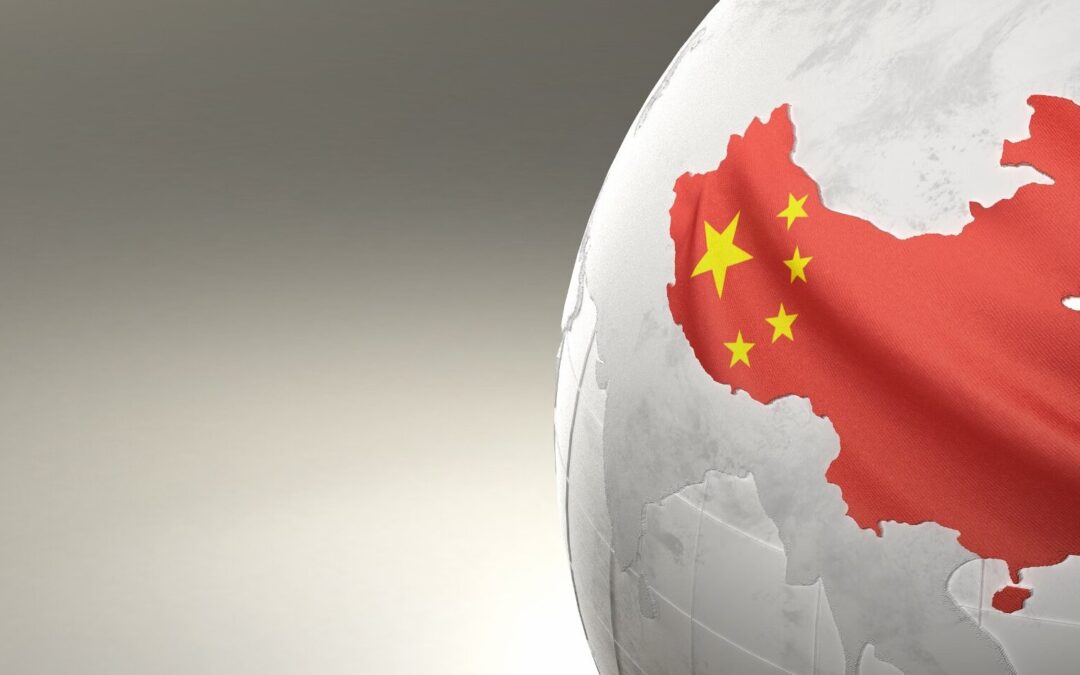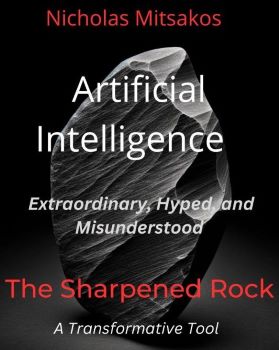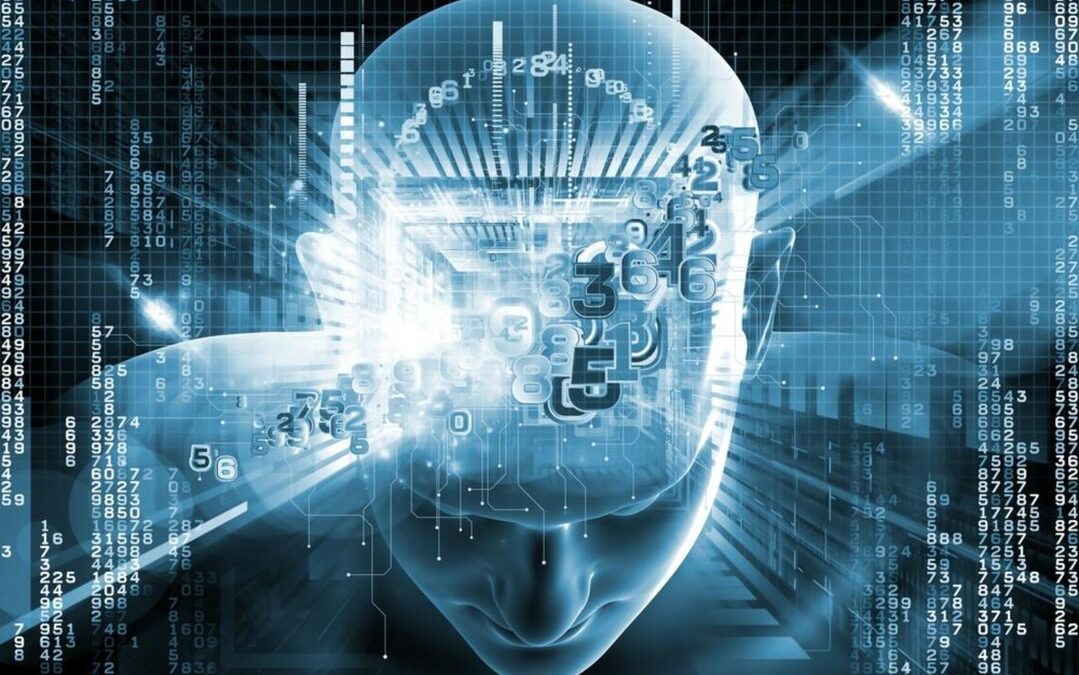
by Nicholas Mitsakos | Artificial Intelligence, Innovation, Podcast, Writing and Podcasts
This podcast discusses my article on the current state of artificial intelligence, focusing on the limitations of large language models and the unrealistic expectations surrounding the development of artificial general intelligence (AGI). I argue that AI systems are not on a trajectory to match or exceed human intelligence because LLMs lack common sense and rely on regurgitating information rather than understanding. Despite the hype surrounding AGI, it is decades away, and the current focus on LLMs is misguided. Instead, I advocate for a different approach to AI that incorporates real-world interactions and visual data.

by Nicholas Mitsakos | Innovation, Science, Writing and Podcasts
Many experts are exaggerating artificial intelligence’s power and peril. Most public commentary, ranging from politicians to prominent technologists, says AI – more precisely, AGI – is close to surpassing human intelligence. The significant risk is that artificial intelligence will supplant human beings. This speculation even comes from Geoffrey Hinton, a Nobel prize-winning AI pioneer. AI models are useful, but, as Yann LeCun, Meta’s AI head, says, they are far from rivaling a house cat’s intelligence, let alone humans. The talk that AI will become so powerful that it poses an existential threat to human beings is nonsense. AI is a powerful tool and is becoming enormously important in all aspects of the economy. But AGI, malicious or otherwise, will not happen anytime soon.

by Nicholas Mitsakos | Artificial Intelligence, Writing and Podcasts
This is a new podcast based on my artificial intelligence research. I argue that the current approach to artificial intelligence, reliant on massive datasets and “neural networks” inspired by the brain, is fundamentally flawed. Instead, it advocates for a new vision that prioritizes cognitive architecture, mirroring the brain’s ability to process information dynamically and identify relevant data. This new approach would utilize smaller, more focused datasets, leading to more efficient, accurate, and scalable AI systems capable of true learning, knowledge transfer, and prediction.

by Nicholas Mitsakos | Artificial Intelligence, Digital Assets, Finance, Financial Technology, Innovation, Transformative businesses, Writing and Podcasts
Apple can disrupt global finance. Visa and MasterCard are now vulnerable. Previously, it was believed that the capital required for infrastructure, systems, and processing was an insurmountable obstacle to any new competitor. But things have changed. Innovation and disruption in the credit card business pose a threat to established players like Visa and MasterCard. Apple can leverage its ecosystem, user experience focus, brand trust, strategic partnerships, and innovative use of data to succeed in the credit card business. Over time, as it scales and innovates, it could challenge Visa and MasterCard’s market dominance.

by Nicholas Mitsakos | Artificial Intelligence, Biotechnology, Book Chapter, Digital Assets, Innovation, Investments, Science, Technology, Writing and Podcasts
Global technological transformation and disruptive technologies create extraordinary opportunities – and magnified risks. Headline-grabbing hyperbole dominates each news cycle, and some forecasts and bewildering futuristic projections can mostly be dismissed. However, meaningful substance and catalytic disruptive change are permeating all industries.
A context to understand these developments – a broader, methodical, and disciplined way to think about disruption and transformation- shows that extraordinary opportunities on a highly competitive global scale are emerging.
Artificial intelligence and AI-generated tools, digital assets, blockchain-based businesses, gene editing, and DNA sequencing profoundly impact the world’s most important industries. New technological innovations and platforms enable unprecedented disruption to all business and economic models.

by Nicholas Mitsakos | Artificial Intelligence, China, Economy, Globalization, Innovation, Investment Principles, Technology, Transformative businesses, Writing and Podcasts
Chairman Xi faces more significant problems than just a declining stock market. Future prosperity, innovation, and China’s global position in advanced technologies are at stake. Bureaucratic regulation and central government money are not the answer, and an uncomfortable truth for communist bureaucrats is that a free market, access to venture capital and private equity, and vibrant public markets are essential for China’s success. A volatile market is still best at attributing value and allocating capital over time. China’s entrepreneurs have brilliance, incomparable fortitude, and a strong work ethic, but without capital and liquidity for that capital, the ship will run aground. Permanent capital is essential for the growth of an economy, innovation, and prosperity. Liquidity is essential for that capital.

by Nicholas Mitsakos | Artificial Intelligence, Book, drug discovery, Economy, Financial Technology, Green Energy, Transformative businesses, Writing and Podcasts
AI as a powerful tool under human direction, not an autonomous entity with consciousness or emotions. It examines artificial intelligence’s opportunities, limitations, and risks while giving a reality check to the hyperbole and fears.
The first and most crucial principle in understanding AI is recognizing its inherent nature as a tool, a creation of human ingenuity designed to augment, rather than replace, human intelligence. AI systems, at their core, are complex algorithms capable of processing and learning from data at a scale and speed unattainable by human cognition.
However, it is an unprecedented, powerful tool that can permeate every aspect of society, industry, and human ingenuity globally. Its impact can be equivalent to Prometheus giving humans the gift of fire.

by Nicholas Mitsakos | Artificial Intelligence, Book, Book Chapter, Innovation, Science, Technology, Transformative businesses, Writing and Podcasts
Artificial intelligence is poised to significantly impact various fields and activities, transforming how we approach creativity, professional activities, science, and many more domains. Disruption will accelerate the development of new innovative businesses and strategies in finance, medicine, data management, systems engineering, materials science, art, and other industries. AI’s impact will be profound and multifaceted, driving innovation and efficiency and posing challenges regarding ethics, job displacement, and new skills and regulations. As AI continues to evolve, its integration into these areas will likely shape the future of human society in significant ways.

by Nicholas Mitsakos | Artificial Intelligence, Biotechnology, Book Chapter, crispr, drug discovery, Health Care, Innovation, Science, Writing and Podcasts
The first gene-edited approved drug (treating sickle cell anemia) is the first commercial rewriting of human genomes. Is this a new “Golden Age” for medicine? There is great promise, and the potential to treat unmet medical needs, scale dramatic innovations to commercial applications, and transform life sciences is enormous. Since every medicine is an intersection of scientific, technical, and clinical understanding, many new treatments are suddenly arriving because of the convergence of dramatic advancements in science, technical knowledge, and clinical results. Modern medicine is witnessing a transformative era of groundbreaking innovations and technological advancements. We are witnessing a renaissance in drug treatment driven by innovations in immunotherapy, weight management, vaccine development, gene editing, and AI. These advances reshape medical treatments and fundamentally alter our approach to health and disease. As these technologies mature and their applications broaden, the future of medicine holds unprecedented potential for improving human health and longevity. A golden age – with a bit of hype.









